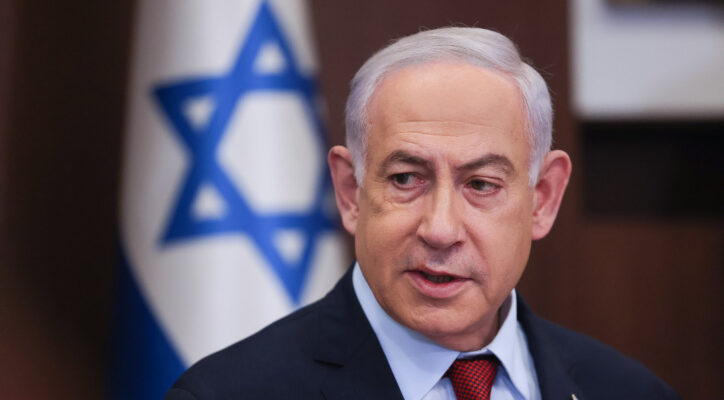Israeli premier calls for Palestinian self-governance and Israeli security control across Judea, Samaria, and Gaza.
By World Israel News Staff
Israeli Prime Minister Benjamin Netanyahu laid out the framework for a post-war division of power in Gaza during an interview with The Wall Street Journal.
In the interview, published on Friday, the Israeli premier laid out three goals for Israel’s ongoing war with Hamas, including the return of the 136 Israeli hostages still held in Gaza, the destruction of Hamas, and three, “ensure that Gaza never again poses a threat to Israel.”
Netanyahu said that all three goals “are achievable,” while adding that they “will take many months.”
To ensure that Gaza does not threaten Israel, Netanyahu continued, Israel must achieve a “durable demilitarization” of the Gaza Strip, “which can only be carried out and sustained by Israel,” along with “deradicalization” of the coastal enclave.
The 74-year-old premier, Israel’s longest serving head of government, expressed optimism regarding the war, saying that thus far it has progressed “better than expected,” comparing it favorably to the U.S. military’s lengthy 2016-2017 operation against ISIS terrorists in Mosul.
Turning to the future of Gaza after the current war, Netanyahu rejected calls abroad for Palestinian statehood, instead endorsing a formula of Palestinian self-governance under Israeli security control. He did not delineate if or how such self-governance would differ from the current autonomy enjoyed by the Palestinian Authority.
“Anyone supporting Israel and who also supports a two-state solution should ask themselves some questions. Do they support the Palestinians having an army? The answer is of course not.”
“The Palestinians should have all the power to govern themselves and none of the powers to threaten Israel,” Netanyahu said.
Israel, he continued, must maintain “over security control” over the entire area between the Mediterranean and the Jordan River, encompassing Israel proper, Judea, Samaria, and the Gaza Strip.
The IDF is currently working to clear out a one-kilometer buffer zone in Gaza along the Israeli frontier, though Netanyahu’s government has not publicly endorsed broader schemes to either resettle Jewish enclaves in the Strip, nor encourage mass Arab emigration.
Netanyahu suggested Israel conduct an “outside in” approach to peace talks; moving forward with normalization negotiations with Arab states before circling “back to the Palestinians,” even as he noted the lack of popular support among Palestinian Arabs for peace with Israel, noting a recent poll showing 85% of Arabs in Judea and Samaria endorsing Hamas massacres on October 7th.





